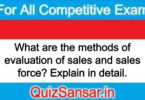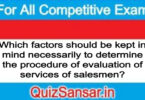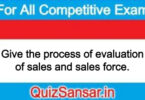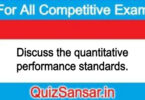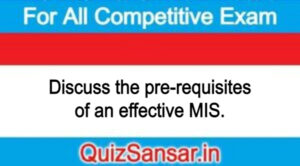
Discuss the pre-requisites of an effective MIS.
Discuss the pre-requisites of an effective MIS.
Ans.
Database :
(a) Database is the “superfile” which consolidates data records previously stored in many data files.
(b) The advantages of using a single database are – (i) Single Point Transaction Entry, (ii) Improved access to data, (iii) Minimizing data redundancy, etc.
(c) The database is sub-divided into the major information sub-sets heeded to run a business, i.e. (i) Customer and Sales File, (ii) Vendor File, (iii) Personnel File, (iv) Inventory File, and (v) General Ledger Accounting File, etc.
(d) The characteristics of Database are –
(i) Each sub-system uses the same information kept in the same file to satisfy its information needs.
(ii) It is user-oriented.
(iii) It is capable of being used as a common data source to various users and helps to avoid duplication of efforts in storage and retrieval of data and information.
(iv) It is available only to authorised persons.
(v) It is controlled by a separate authority known as Data
Base Management System (DBMS).
(vi) Such a database meets the information requirements of control to its optimum.
Qualified System and Management Staff:
(a) The maintenance of data in database requires computer hardware, software and experienced computer professionals. In addition, it requires a good data collection system equipped with experts who have first-hand knowledge of the Company’s operations and its information needs.
(b) The MIS should be manned by qualified officers, who are experts in the field and who understand clearly the views of their fellow officers.
(c) The management base should comprise of two categories of officers:(i) Systems & Computer Experts & (ii) Management Experts.
(d) Systems and Computer Experts should be experts in their own subject area and also in management concepts in order to understand problems faced by the Firm. They should be clear about the process of decision-making and information requirements for planning and control.
(e) Management Experts should understand the concepts and operations of a computer, which will help them in using computers and working with systems technicians during design and review of the MIS.
Support of Top Management:
(a) The resources and efforts involved in computer-based information systems are large in view of the importance gained by MIS. However, Middle Level and Operational Managers are usually not interested in those activities which do not receive the support of their superiors (Top Management).
(b) Hence, to be effective, the MIS should receive the full support of top management. Top Management should take the initiative in revising and implementing an effective MIS.
Control and Maintenance:
(a) Control of MIS means the operation of the system as it was designed to operate. The management at each level in the organisation should devise checks for the control of MIS. By-passing controls, use of short-cut methods, etc. should be avoided by proper control.
(b) Maintenance means the identification of improvements, modifications and additions to the system, as required by environmental changes. Formal methods for changing and documenting changes must be provided.
Evaluation of MIS: An effective MIS should be capable of meeting information requirements of its executives in future also. This capability can be maintained by evaluating the MIS and taking appropriate timely action, considering the following-
(a) Existence of flexibility in the system, to cope with any future expected or unexpected information requirement.
(b) User and designer views about the capabilities and deficiencies of the system.
(c) Guidance to the appropriate authority about the steps to be taken to maintain effectiveness of MIS.


